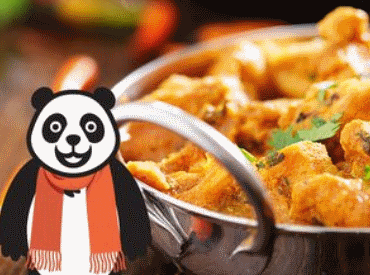In December, foodpanda was merged by its investor Rocket Internet with Delivery Hero, a German online food delivery platform after the Indian operations reported losses.
The money raised from Naspers will help foodpanda beef up on its technology and delivery, a key to getting back to growth it lost to rivals such as Swiggy and Zomato. foodpanda, which aggregates restaurants in over 150 cities, delivers around 70,000 orders a day, with thrice the number of orders on weekends.
"We are constantly looking to strengthen and enhance our food ordering and delivery experience. We recently launched the India app and have made significant investments in the technology and delivery ecosystem. This funding will help further our goals in making the foodpanda experience impeccable, for each of our customers, " said Saurabh Kochhar, CEO, foodpanda India in a statement.
India's foodtech market - a segment that uses technology to make and deliver food to consumers, is seeing revival after a meltdown in the last two years that saw several firms scale down or shut operations due to unviable business model.
Firms were spending more money on luring customers on their platforms to order food than they earned as commission from restaurants for orders. The foodtech meltdown also forced global investors to relook business models and not invest in startups that are clones of global firms.
Also Read
By backing foodpanda and its India arm, Naspers is deepening its play in the country. The South African internet firm backs Flipkart, both on its own and through Chinese internet firm Tencent; owns stake in India's largest travel aggregator MakeMyTrip with merger of its firm Goibibo and owns payment platform PayU.
"Food ordering and delivery presents an attractive opportunity for us. It is a large, underpenetrated, and growing market with potential for success across a broad range of geographies that Naspers knows well," Bob van Dijk, CEO of Naspers, said. "Delivery Hero has already achieved significant traction in some markets, but we believe that the vast majority of high-growth markets are at the beginning of the opportunity cycle."
Last month, Zomato raised around $20 million from existing backers Sequoia Capital, Vy Capital, Info Edge, and new investors including WhatsApp's Neeraj Arora.
The return of sanity in India's food tech sector has meant that platforms are now charging delivery fees for low-cost orders as they look to protect their margins. Zomato, which moved from just curating restaurants to taking food orders online, has even outlined its plan to have 'Cloud Kitchens' which it will own and rent out to restaurants.
There is a clear move towards earning more margins from restaurants, while at the same time reducing burn on acquiring customers through digital ads on Google and Facebook.

)
